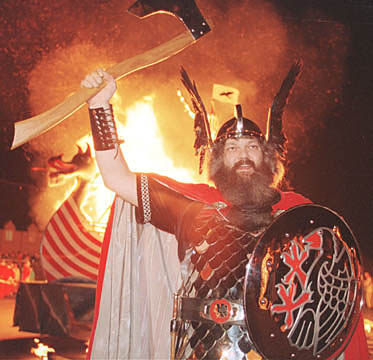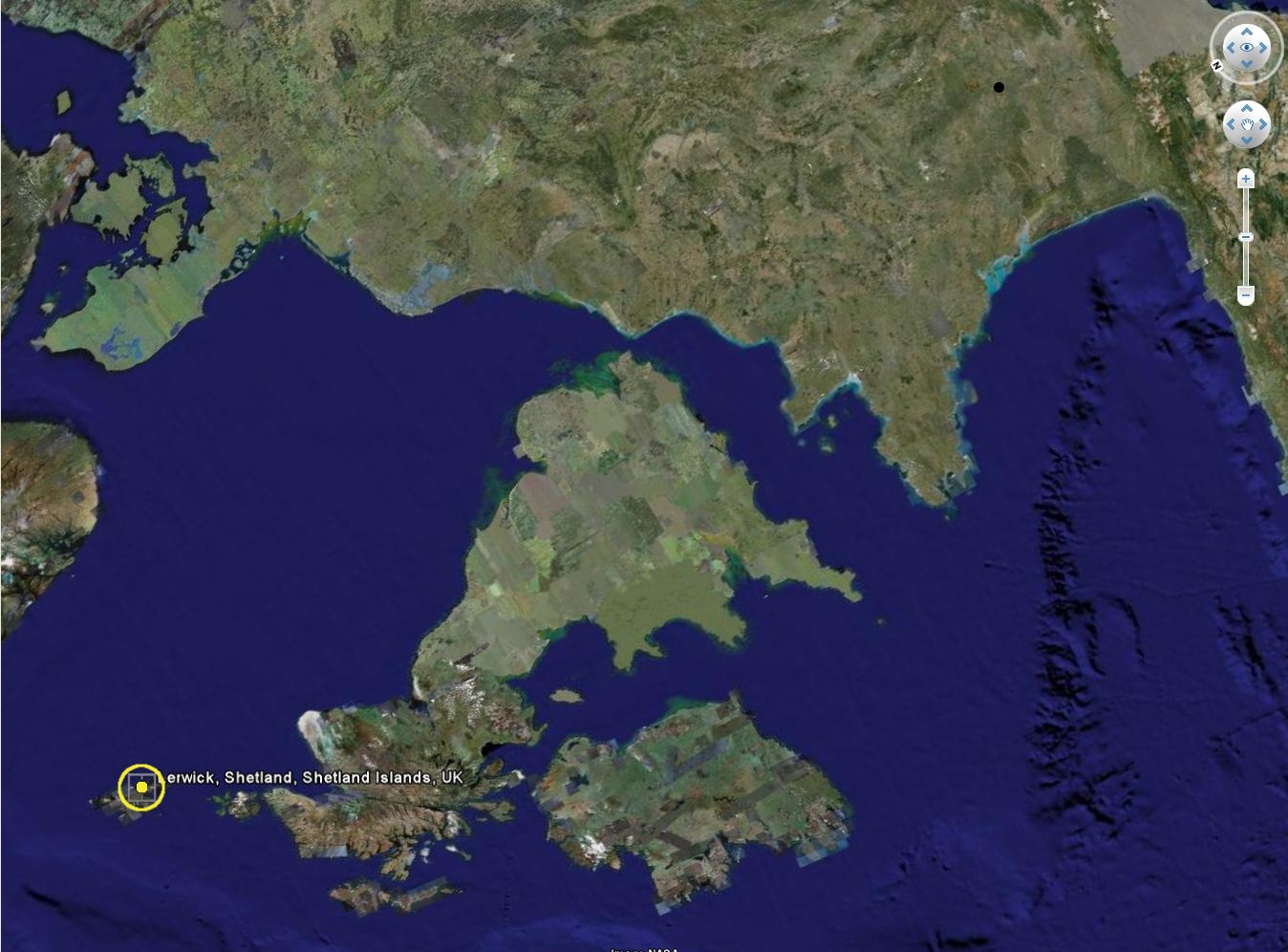Up Helly Aa refers to any of a variety of fire festivals
held in Shetland annually in the middle of winter to
mark the end of the yule season.
The festival involves a procession of up to a thousand
guizers (pronounced "geezers") in Lerwick and considerably
lower numbers in the more rural festivals. They form
into squads who march through the town or village in a
variety of themed costumes.(next 3 photos)
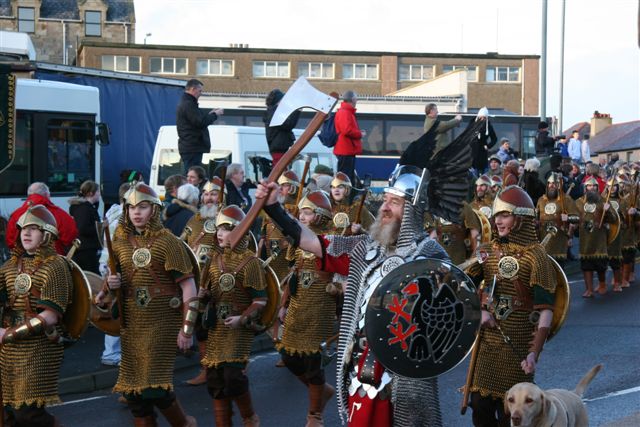
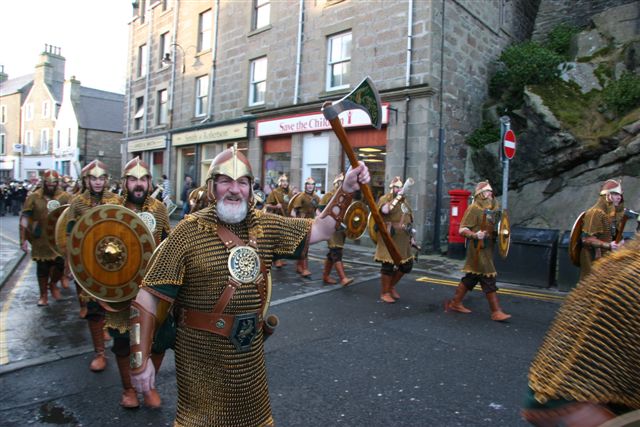
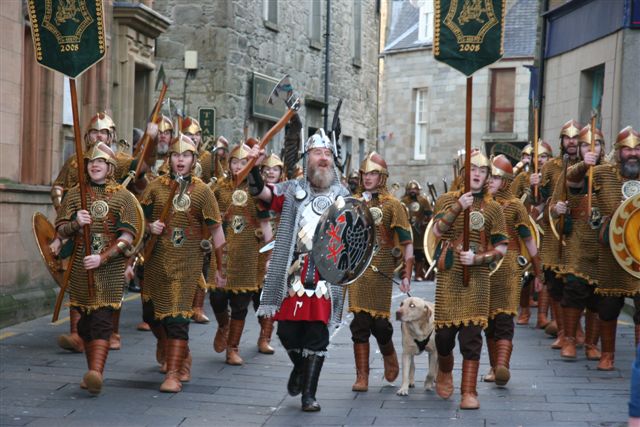
There is also a formal parade in which a galley ship,
made just for the ceremony, is taken through the
streets, towards the water. There, it is placed on
the beach, awaiting for the ending ceremony.

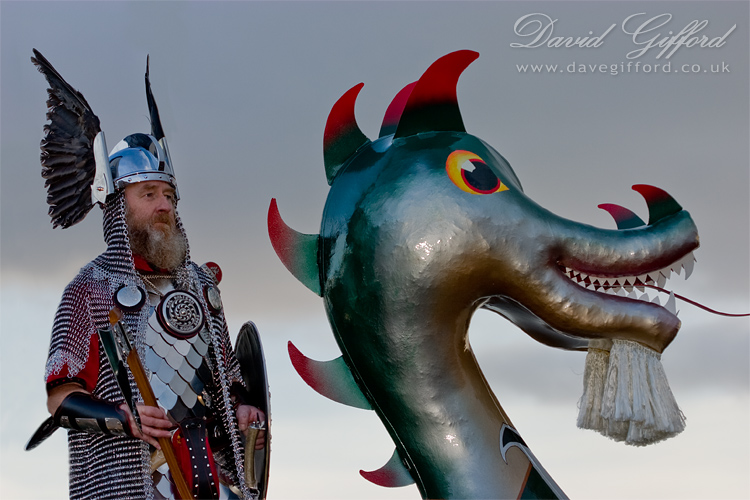
The current Lerwick celebration grew out of the
older yule tradition of "tar barrelling"* (see footnote),
which took place at Christmas and New Year. After the
city of Lerwick banned tar barrelling, permission was
eventually obtained for torch processions. The first
yule torch procession took place in 1876. The first
torch celebration on Up Helly-Aa day took place in 1881.
The following year the torchlit procession was
significantly enhanced and institutionalised through a
request by a Lerwick civic body to hold another Up
Helly-Aa torch procession for the visit of the Duke
of Edinburgh. The first galley ship was burned in 1889.
There is a main guizer who is dubbed the "Jarl". There is a committee which you must be part of for fifteen years before you can be a
jarl, and only one person is elected to this committee each year.
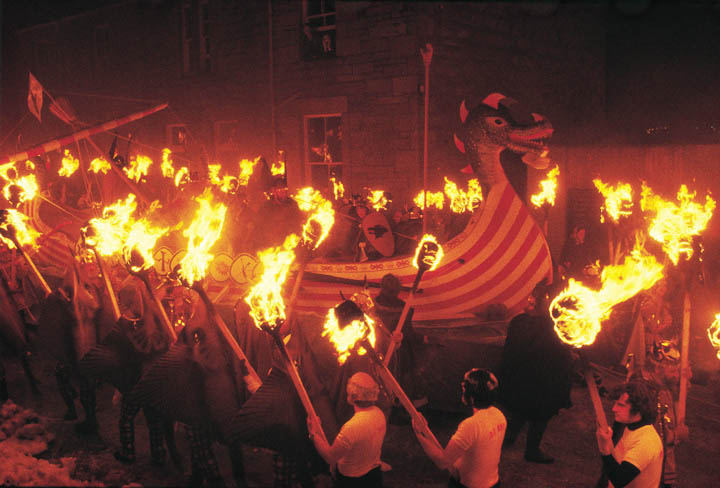
The procession culminates in the torches being thrown into a replica Viking longship or galley. The event happens all over Shetland,
but it is only the Lerwick galley which is not sent seaward. Everywhere else, the galley is sent seabound, in an echo of actual Viking
sea burials.
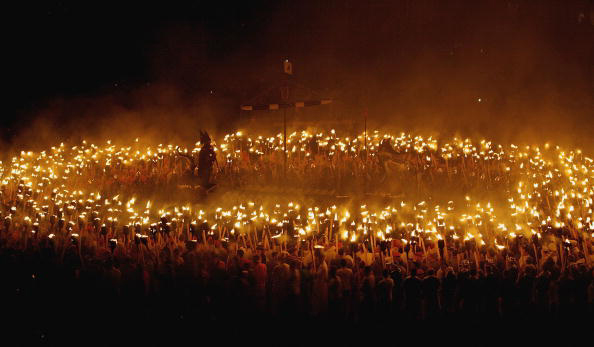
After the procession, the squads visit local halls (including schools, sports facilities and hotels), where private parties are held. At
each hall, each squad performs its act, which may be a send-up of a popular TV show or film, a skit on local events, or singing or
dancing, usually in flamboyant costume.
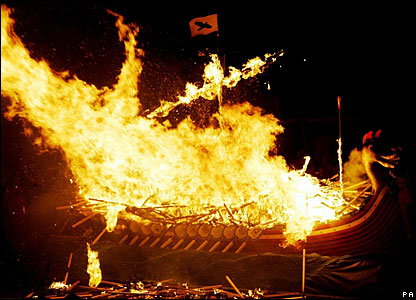
Due to the often-flamboyant costumes and the large quantity of males dressing up as females, it has earned the joke name
'Transvestite Tuesday'.
* "Tar Barrelling" is a processional celebration derives
from pagan times, in which barrells are soaked in tar and
then set afire. Each burning barrell is passed from man
to man until it reaches the river, where all the barrells
are tossed into one huge bonfire. Every year, participants
are burned, and many hospitalized. Hence, many towns have
put legal bans on the practice.
|

